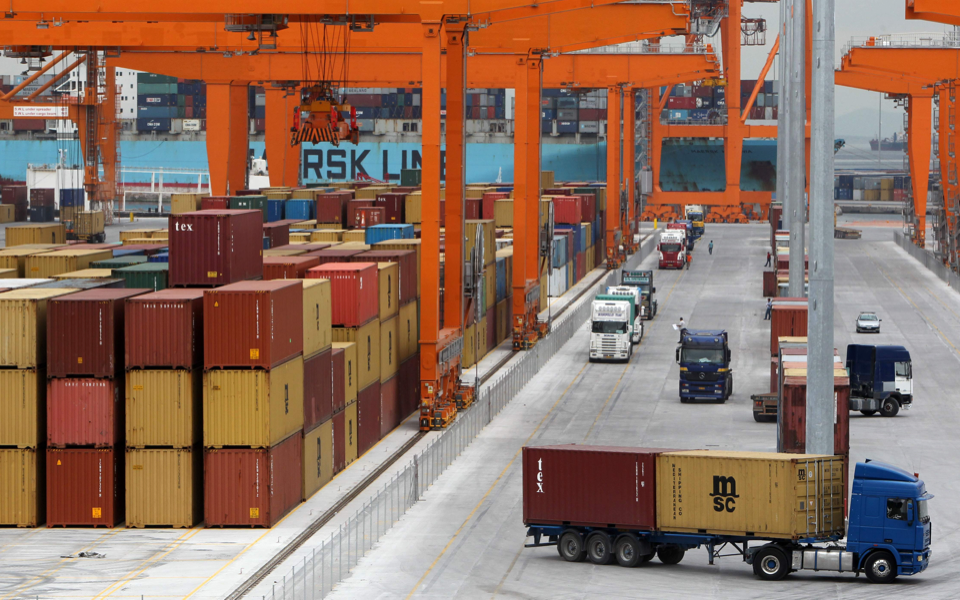Exports that depend on imports of goods

Exports of goods have shown a steady upward trend in recent years, but at the same time the percentage of imported goods (mainly primary and secondary materials, equipment etc) that are used to produce the exported products is increasing more and more.
Although before the financial crisis the percentage of imported intermediate goods used in the production of exported products was 25.3%, it has now jumped to 36.5%. As a result of the above, the Greek economy and businesses are more vulnerable to international, geopolitical, environmental and economic crises. It is no coincidence that after the pandemic the trade deficit has been widening again, causing in turn a widening of the current account deficit, which is proving to be one of the most persistent problems of the Greek economy. In the two years 2022-23, the trade deficit, excluding fuel and ships, approached the historical high of the two years 2007-08 as a percentage of GDP.
Another important matter is the limited production of highly technologically intensive products, which is at the same time of high added value, as the famous restructuring of the country’s productive structure has yet to be achieved.
An analysis by the Center for Planning and Economic Research (KEPE) shows that the trade deficit as a percentage of GDP is beginning to approach the historical highs of the period just before the outbreak of the economic crisis.
The highest level of goods balance deficit was observed in the period 2007-08, reaching 18.36% of GDP, or €43.58 billion. In the period 2020-23 the average annual deficit of the balance of goods was 14.95% of GDP, or €29.3 billion. The large difference is due to the drastic contraction of GDP in the previous decade.
Even more worrying are the figures for the goods balance deficit, excluding fuel and ships, as they also give a clearer picture of the picture of Greek production. The average annual deficit in the balance of goods excluding fuel and ships as a percentage of GDP in 2022-23 was 12.06%, approaching the 2007-08 biennium deficit of 12.73% of GDP, which is, historically, the highest level. In absolute terms, the average annual deficit in 2022-23 was €25.71 billion, compared to €30.19 billion in 2007-08.





